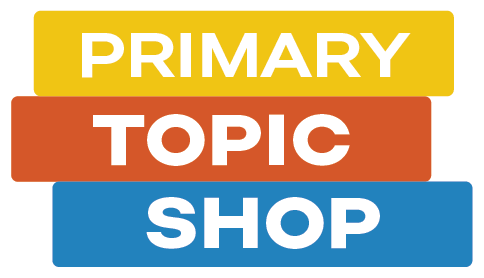Why Some Kids Just "Get It" (And How We Can Help The Kids That Don’t)
by Richard Galloway
You've seen it in your classroom. Two students read the same passage, but one breezes through while the other stumbles, not because of reading skills, but because one child immediately understood a reference to "crossing the Rubicon" while the other had no idea what that meant. What you're witnessing isn't a difference in ability. It's cultural capital at work.
The Invisible Advantage
I'll be honest, I used to think some kids were just naturally better at making connections in their reading. A while back, I started hearing about something called cultural capital. (This term was first coined by Pierre Bourdieu and Jean-Claude Passeron in the 1970s, so it’s not a new idea.) Cultural capital is the knowledge, skills, and cultural references that some students learn from their families and communities, knowledge that schools assume everyone has but never explicitly teach.
Think about it: when your students encounter phrases like "a Pyrrhic victory" or "the shot heard 'round the world" in their reading, some immediately grasp the deeper meaning, while others get stuck on basic comprehension. It's not because some kids are smarter. It's because some arrive at school already equipped with historical and cultural knowledge that makes texts accessible.
It's All About Reading Comprehension
Here's what really got my attention: research shows an incredible .86 correlation between reading and science scores on international assessments. That's not because science is really reading in disguise; it’s because academic language and cultural knowledge, not technical vocabulary, are often the biggest barriers to understanding any text. *Claussen & Osborne, 2013
When we dig deeper into this research, we find that background knowledge isn't just helpful for reading comprehension, it’s essential. Students who have rich stores of cultural and historical knowledge can make sense of texts that leave other students completely lost, even when both groups have similar decoding skills.
The Hard Truth About Equity
I used to think the playing field was level once kids walked into my classroom. But Bourdieu's research opened my eyes to how cultural advantages get passed down through families in ways that have nothing to do with money. Kids whose families visit museums, discuss current events at dinner, or casually reference historical events are building cultural capital without even realising it.
Meanwhile, other students, often just as bright and motivated, arrive without these cultural reference points. When schools reward this inherited knowledge without explicitly teaching it, we're essentially penalising students for their family backgrounds. That's not fair, and it's not effective teaching.
What I Do Differently Now
Once I understood how cultural capital works, I completely changed my approach. Instead of assuming students know historical contexts, I build them intentionally:
I connect everything to history. When I share books about families, we talk about how families lived differently long ago. When we study animals, we explore how people used to travel before cars existed. When we look at old photographs, we become detectives figuring out clues about the past. These connections help children understand that every story has a "when" and "where" that matters.
I make historical thinking visible. I teach students to notice patterns like "What's the same? What's different?" when comparing then and now. We practice seeing different sides of stories—like how the Three Little Pigs might look from the wolf's perspective. These thinking skills help children understand any text more deeply because they're learning to ask good questions.
I build cultural bridges. Instead of replacing what students bring from home, I connect new learning to their family stories. When we study community helpers, we talk about jobs their grandparents had. When we explore traditions, we celebrate the holidays and customs each family brings. Every child has family wisdom, my job is to show them how valuable it is for their learning.
I try and diversify the narratives. The historical stories I share include children from everywhere, and when possible we discuss Indigenous communities, immigrant families, rural and city life. We read folktales from different cultures and learn about inventors and leaders of all backgrounds. This way, every child can see people like them making history and contributing to our shared story.
The Real Impact
When I started deliberately building cultural capital, something amazing happened. Students who used to struggle with "challenging" texts began making connections I'd never seen before. They stopped getting stuck on cultural references and started using them as stepping stones to deeper understanding.
More importantly, I stopped seeing some students as "naturally good readers" and others as "struggling." Instead, I saw students with different cultural starting points, all capable of developing the background knowledge that makes reading truly meaningful.
I won't pretend this transformation happens overnight. Building cultural capital takes time, patience, and consistent effort. Some days it felt like I was planting seeds without seeing any growth. But here's the thing, if we never start, this change will never happen. Every cultural connection we make, every historical context we provide, every bridge we build between students' lives and academic content matters. These small daily acts accumulate into something powerful.
You have this power too. Every time you explain a historical reference, connect a text to its context, or teach students to think historically, you're building cultural capital. You're ensuring that academic success depends on what happens in your classroom, not just what students bring from home. Start today, even if it's just with one story, one connection, one moment when you help a child see themselves in the larger human story.
That's equity in action.
More Reading on this subject can be found here -
What to know - The importance of Cultural Capital - David Didau
Some problems with Cultural Capital and Cultural Mobility. - Martin Robinson
Explaining Ofsted’s Definition of ‘Cultural Capital’: A Comprehensive Guide - John Rees
*Claussen, S., & Osborne, J. (2013). Bourdieu's notion of cultural capital and its implications for the science curriculum. Science Education, 97(1), 58-79.


